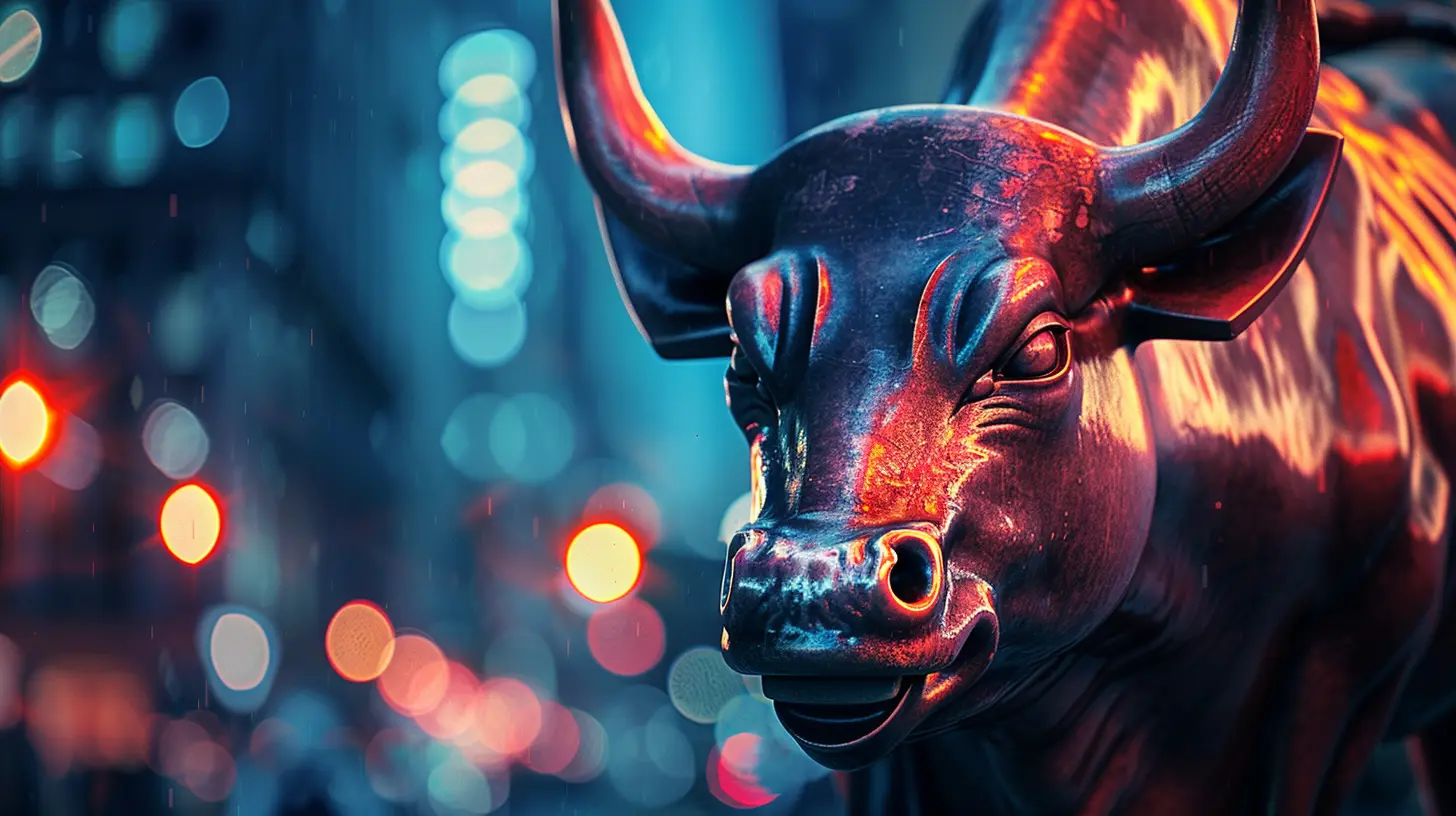Meme Stocks and the New Age of Speculative Trading
23 June 2025
Remember the days when stock trading was mostly for suits in skyscrapers and Wall Street pros pouring over giant spreadsheets? Yeah, that’s ancient history now. Welcome to the wild world of meme stocks and the new age of speculative trading—where Reddit threads, TikTok videos, and Twitter hype can send stock prices soaring or crashing in a blink.
If you’ve ever wondered why a struggling video game retailer or a cinema chain drowning in debt suddenly becomes Wall Street’s hottest commodity, buckle up. We’re about to dig deep into how meme stocks are reshaping the financial markets, what it means for you, and whether this craze is here to stay—or just another bubble waiting to pop.
What Are Meme Stocks Anyway?
Let’s break it down. A meme stock is a company’s share that sees a sharp uptick in trading volume and price, not because of traditional fundamentals like earnings or growth projections—but because it went viral online.Seriously.
A wave of individual investors, often coordinating on platforms like Reddit (especially the r/WallStreetBets subreddit), Instagram, or Twitter, jump into a stock purely based on internet momentum, sparking epic buying sprees.
The OG Meme Stock Saga: GameStop (GME)
We can’t talk about meme stocks without tipping our hats to GameStop. In early 2021, a group of Redditors noticed hedge funds heavily shorting GME (i.e., betting it would fall). So what did they do? They turned the tables.Retail traders banded together, bought up shares en masse, and triggered a massive "short squeeze"—forcing hedge funds to cover their losses by buying the stock back at way higher prices. The result? GameStop's share price skyrocketed over 1,700% in just a few weeks.
It was David vs. Goliath, Wall Street vs. Main Street—and Main Street won, at least for a while.
The Ingredients Behind a Meme Stock Frenzy
So, what makes a meme stock take off like a rocket?1. Social Media Hype
It all starts with a viral post or video. A user claims a certain stock is the next big thing, with witty commentary, memes, or even conspiracy theories. If it catches on, it spreads like wildfire.2. High Short Interest
Wall Street shorting a stock? That’s like blood in the water. Retail traders see it as a challenge—and nothing gets the internet going like a good underdog story.3. Cheap Entry Point
Meme stocks are usually low-priced to begin with. People are far more willing to gamble a few hundred bucks than risk thousands on a blue-chip company.4. FOMO (Fear of Missing Out)
Once the price starts climbing, everyone wants in. Nobody wants to be the person who missed “the next GameStop.”
Social Media: The New Trading Floor
Forget CNBC. The real action happens on Reddit, Discord servers, and TikTok streams. Retail investors now have platforms to share insights (and sometimes sheer speculation), triggering moves based on rapid mass psychology instead of financial analysis.It’s a bit like a giant digital game of telephone—with stock recommendations flying faster than you can say “YOLO.”
And while that might sound chaotic, there’s an upside: the democratization of investing. For the first time, “the little guys” have a voice loud enough to shake up the markets.
The Rise of Retail Traders
Years ago, investing seemed intimidating. You needed a broker, a minimum deposit, and a solid understanding of financial gibberish. Enter Robinhood and other no-fee trading platforms, and suddenly, everyone’s an investor.What's Changed?
- Zero commissions lowered the barrier to entry.- Fractional shares let you own parts of expensive stocks.
- Mobile apps made trading as easy as ordering pizza.
- Stimulus checks and boredom during lockdowns added fuel to the fire.
Add social media to the mix, and voilà—trading became social, addictive, and, let’s be honest, a little bit like gambling in a glitzy casino.
Speculation vs. Investing: Know the Difference
Here’s where things get dicey. Traditional investing is about analyzing a company’s fundamentals—its revenue, debts, growth strategy, etc. Speculative trading? It’s placing bets based on emotion, social trends, or the hope of “getting rich quick.”Meme stocks fit squarely in the second category.
Now that doesn't make them inherently bad. But if you're chasing meme stocks expecting safe, long-term returns, you’re basically trying to ride a rollercoaster with no seatbelt.
The Pros of Meme Stock Mania
Let’s give credit where it’s due. The meme stock movement has flipped the game in some fascinating ways:1. Leveling the Playing Field
Retail investors have shown they’re a force to be reckoned with. They’ve taken control of narratives and called out Wall Street's shady practices.2. More Access to Trading
The financial world isn’t just for old-school institutions anymore. Everyone from college students to stay-at-home parents can participate.3. Mass Financial Awareness
Even if some are just chasing hype, more people are talking about the stock market than ever before. And that’s a win for financial literacy.The Risks: Volatility, Hype, and Herd Mentality
Here's the flip side—and it’s a big one.1. Crazy Volatility
Meme stocks can jump 100% in a day and crash 80% the next. If you can’t stomach that kind of rollercoaster, you could lose sleep—or worse, your money.2. Emotional Trading
The human brain isn’t built for high-stakes investing. Panic selling and FOMO buying are surefire ways to get burned.3. Market Manipulation?
Some critics argue that coordinated buying (even if organic) borders on manipulation. Regulators are watching these moves closely.Case Study: AMC, Bed Bath & Beyond, and Beyond
After GameStop, AMC Theatres was next. Despite weak financials and a tough outlook, AMC saw a meteoric rise thanks to—you guessed it—online communities.The pattern repeated with Bed Bath & Beyond, Blackberry, and even cryptocurrency-adjacent stocks. The key takeaway? It doesn’t matter if the company is struggling. If the meme is strong enough, it can defy logic—at least temporarily.
What’s the Future of Meme Stocks?
Are they here to stay? Short answer: yes, but with an asterisk.Meme stocks weren’t just a 2021 blip. They signaled a cultural shift in how people approach investing. Retail investors aren’t going away, and social media isn't suddenly going silent.
That said, the dust has settled a bit. As more people get educated and savvy, the hype cycles may grow shorter, and meme stock plays might lose some steam.
Still, companies know the power of meme-fueled momentum now. You’ll likely see more brands trying to engage retail investors directly, maybe even through their own memes and social engagement strategies.
Tips for Navigating the Meme Stock Craze (Without Getting Burned)
So, you’re thinking about jumping on the meme train. Cool. Here's how to do it without crashing and burning:1. Treat It Like Entertainment
Invest your “fun money,” not your rent money. View it more like Vegas than Vanguard.2. Set Exit Strategies
Know when you’ll sell—whether that’s based on price, percentage gain, or gut feeling. Don’t get greedy.3. Do Some Homework
Even if everyone on Reddit is hyping it, check out the company’s financials. You might uncover some red flags—or hidden gems.4. Diversify, Diversify, Diversify
Don't put all your eggs in one Reddit basket. Even if one stock moons, others can tank instantly.Final Thoughts: A New Era, But Same Old Rules (Mostly)
The era of meme stocks and speculative trading is wild, unpredictable, and… honestly, kind of fun. But it's not without its risks. Just because a bunch of people online are shouting “Diamond Hands!” doesn’t mean you should dump your life savings into a stock that was practically bankrupt last quarter.Think of meme stocks as the fast food of investing—tasty in the moment, but not something you want to base your entire financial diet on.
Still, meme stocks have done something incredible. They’ve pulled millions into the world of investing, sparked conversations, and challenged age-old finance norms. That’s nothing to scoff at.
Just remember: the hype is real—but so is the risk.
all images in this post were generated using AI tools
Category:
Speculative InvestingAuthor:

Harlan Wallace
Discussion
rate this article
1 comments
Dior Banks
Collective behavior redefines value perception today.
July 13, 2025 at 11:17 AM

Harlan Wallace
Thank you for your insight! Collective behavior indeed plays a crucial role in shaping value perception in today's market, especially with meme stocks driving speculative trading trends.


